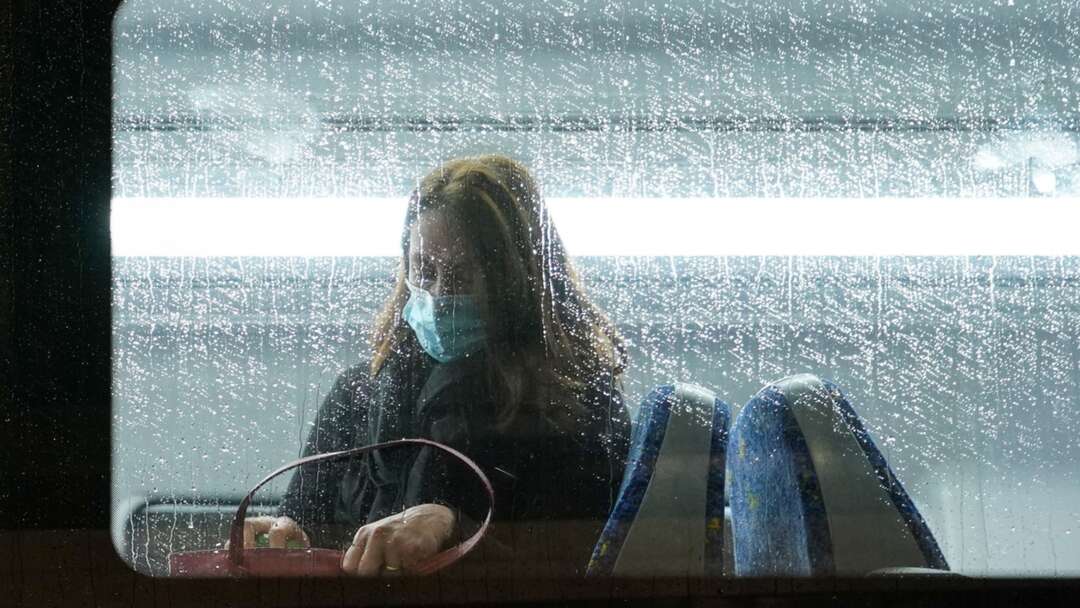-
As UK Heads To End Pandemic Restrictions, Doctors Say Some Prevention Measures Should Remain

According to the Sky News, Prime Minister Boris Johnson is hoping that the final phase of his plans to end England's restrictions can go ahead on 19 July. However, the British Medical Association says that some coronavirus prevention measures should remain after 19 July to stop the "alarming" rise in cases. Doctors
Sky News reported that Public Health England figures show 161,981 confirmed and probable cases of the Delta variant - up 50,824 or 46% on the previous week.
The news agency reported, citing the council's chair, Dr Chaand Nagpaul as saying that, easing restrictions was not an "all or nothing" decision, and that "sensible, cautious" measures will be vital to minimising the impact of further waves, new variants and lockdowns.
He added: "As case numbers continue to rise at an alarming rate due to the rapid transmission of the Delta variant and an increase in people mixing with one another, it makes no sense to remove restrictions in their entirety in just over two weeks' time.
Advertisement Doctors
"The promise was to make decisions based on data and not dates, and while we were pleased to see the government react to data in delaying the easing on 21 June last month, ministers must not now simply disregard the most recent, damning, numbers by rushing into meeting their new 19 July deadline."
Dr Nagpaul said the BMA was not asking for the reopening to be delayed but it wanted "targeted measures" to help prevent virus transmission.
These include face masks in public areas such as shops and public transport, and better public messaging about the importance of social distancing and ventilation.
Dr Nagpaul added: "Everyone appreciates the efforts and sacrifices we have all made so far to suppress the spread of the virus, and it would be tragic if we were to undo this good work now." Doctors
The number of people being admitted to hospital with COVID-19 remains low compared to the rise in cases but Dr Nagpaul said: "Even if people aren't getting admitted to hospital at the same rate, spiralling levels of community transmission provides a fertile ground for new, potentially vaccine-resistant variants to develop."
It comes as The Times reports that ministers plan to drop all requirements, including isolation for fully-vaccinated people who come into contact with some who is infected with COVID-19.
A meeting on Monday will look at a plan to advise - but not require - fully-vaccinated people to take daily tests in this situation.
Some 45,013,503 people in the UK have now had their first jab - 85.5% of all adults - while 33,241,265 people have had both jabs - 63.1% of adults. Doctors
You May Also Like
Popular Posts
Caricature
BENEFIT Sponsors BuildHer...
- April 23, 2025
BENEFIT, the Kingdom’s innovator and leading company in Fintech and electronic financial transactions service, has sponsored the BuildHer CityHack 2025 Hackathon, a two-day event spearheaded by the College of Engineering and Technology at the Royal University for Women (RUW).
Aimed at secondary school students, the event brought together a distinguished group of academic professionals and technology experts to mentor and inspire young participants.
More than 100 high school students from across the Kingdom of Bahrain took part in the hackathon, which featured an intensive programme of training workshops and hands-on sessions. These activities were tailored to enhance participants’ critical thinking, collaborative problem-solving, and team-building capabilities, while also encouraging the development of practical and sustainable solutions to contemporary challenges using modern technological tools.
BENEFIT’s Chief Executive Mr. Abdulwahed AlJanahi, commented: “Our support for this educational hackathon reflects our long-term strategic vision to nurture the talents of emerging national youth and empower the next generation of accomplished female leaders in technology. By fostering creativity and innovation, we aim to contribute meaningfully to Bahrain’s comprehensive development goals and align with the aspirations outlined in the Kingdom’s Vision 2030—an ambition in which BENEFIT plays a central role.”
Professor Riyadh Yousif Hamzah, President of the Royal University for Women, commented: “This initiative reflects our commitment to advancing women in STEM fields. We're cultivating a generation of creative, solution-driven female leaders who will drive national development. Our partnership with BENEFIT exemplifies the powerful synergy between academia and private sector in supporting educational innovation.”
Hanan Abdulla Hasan, Senior Manager, PR & Communication at BENEFIT, said: “We are honoured to collaborate with RUW in supporting this remarkable technology-focused event. It highlights our commitment to social responsibility, and our ongoing efforts to enhance the digital and innovation capabilities of young Bahraini women and foster their ability to harness technological tools in the service of a smarter, more sustainable future.”
For his part, Dr. Humam ElAgha, Acting Dean of the College of Engineering and Technology at the University, said: “BuildHer CityHack 2025 embodies our hands-on approach to education. By tackling real-world problems through creative thinking and sustainable solutions, we're preparing women to thrive in the knowledge economy – a cornerstone of the University's vision.”
opinion
Report
ads
Newsletter
Subscribe to our mailing list to get the new updates!






















